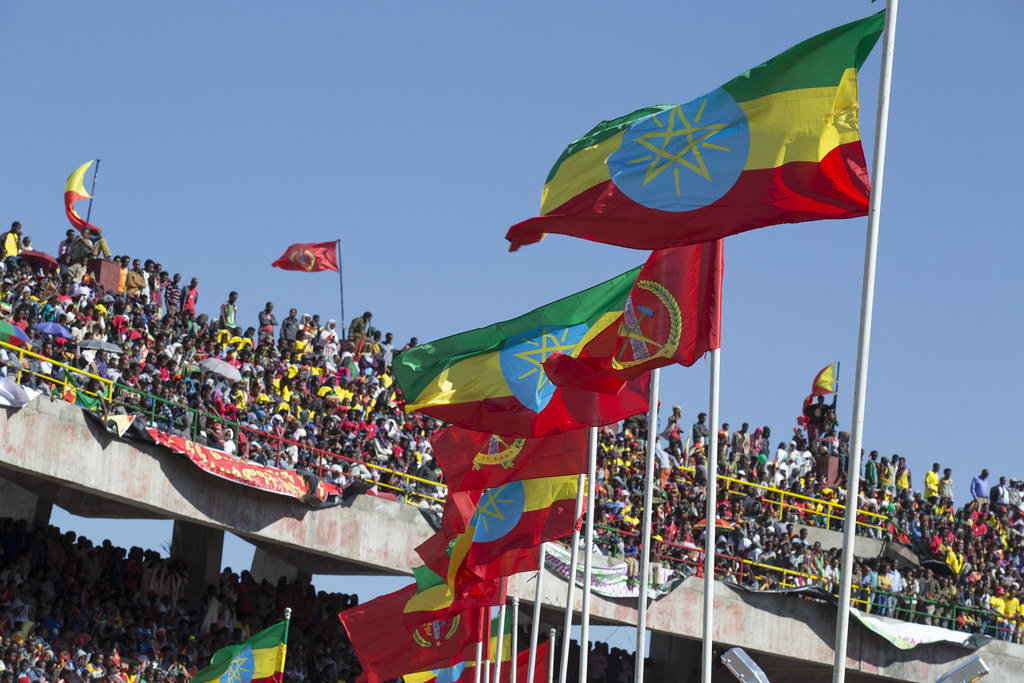
Tigray's People's Liberation Front (TPLF) flag hoisted alongside Ethiopia's national flag - February 2015
In a damning report by Al Jazeera, reporters uncovered a series of incidents where Ethiopian security officers have been extorting and abusing Tigrayan civilians detained without charge.
Since an influx of arbitrary arrests last year, Ethiopian security forces, including "prison wardens, government prosecutors and officials from the attorney general's offices have demanded exorbitant bribes for release."
One Tigrayan detainee, held for seven months until his family ultimately paid for his freedom, told Al Jazeera; "We have become a commodity in prison… they slap a price on you. Then your loved ones have to find the money and buy your freedom."
Some relatives of prisoners told Al Jazeera that Ethiopian security officers demanded up to 500,000 Ethiopian birrs (or $10,000). However, with an average annual income of less than $1,000, many impoverished families cannot pay the hefty price.
Some families have reported that security officials have demanded payment to secure drinking water, food, and medicine and even allow detainees to use the shower and toilets without the promise of release.
Tigrayan detainees told Al Jazeera they were only given "two pieces of bread to eat a day." The detainees who did not pay these erratic fees were eating "without ever washing their hands, even after toilet use."
The conflict between the Ethiopian government and the Tigray's People's Liberation Front (TPLF) began in November 2020 after Ethiopian Prime Minister Abiy Ahmed launched a military offensive against the TPLF. The conflict has killed thousands and left hundreds of thousands facing famine-like conditions.
As the internecine conflict ravaged the second most populous African country, massacres, rapes and deliberate starvation became commonplace. Tigrayans have been persecuted as the fragile ethnic harmony of the country crumbled, and public mood became more polarised.
In January, a Human Rights Watch report revealed that thousands of Tigrayan migrant workers in Saudi Arabia who were deported to Ethiopia have been locked up in detention camps and forcibly disappeared.
In December of 2021, the UN Human Rights Council voted to establish an international probe to investigate atrocities committed by both sides of the conflict in Ethiopia and prosecute those responsible.
Read more here.



